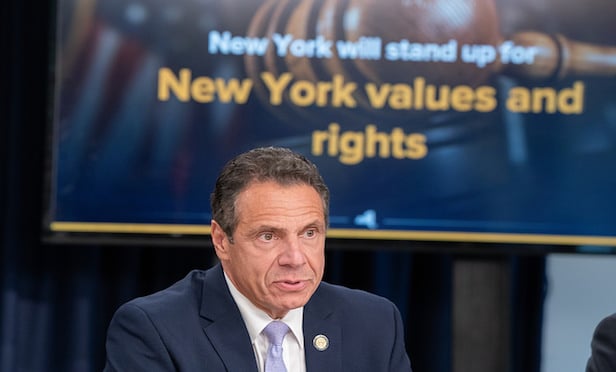WASHINGTON, DC—The push to extend the Terrorism Risk Insurance Act took a small step forward. The Senate Banking Committee unanimously approved the extension on Tuesday and the measure now moves to the full Senate floor. Meanwhile, the House of Representatives is revving up for its own measure plus a likely negotiation for compromise with the Senate, which is more accepting of the measure.
But all that is down the road. For now, the commercial real estate industry is breathing a sigh of relief that the measure made it past this milestone. "The Senate Banking Committee did the right thing today by voting to extend the terror insurance act," Real Estate Roundtable CEO Jeff DeBoer tells GlobeSt.com. "Allowing this important law to lapse would slow job growth and leave our economy vulnerable to terrorist attacks."
Briefly, the Senate measure, put forward in the Senate by Charles E. Schumer (D-NY), Dean Heller (R-NV), Mark Kirk (R-IL) and Jack Reed (D-RI) earlier this year would increase an insurers' co-pay from 15 to 20%, with the government still covering 80% of each company's additional losses. This increase would be phased in incrementally over five years. The proposed legislation would also raise the mandatory recoupment threshold to $37.5 billion, so that when the insurance industry's aggregate uncompensated losses are below $37.5 billion the government will be required to recoup its TRIA payments outlaid to insurers.
The path TRIA has to chart in the House, though, may prove to be a little trickier than the Senate.
Last month House Financial Services Chairman Jeb Hensarling, R-Texas and Rep. Randy Neugebauer, R-Texas, circulated an alternative to TRIA called The Terrorism Risk Insurance Modernization (TRIM) Act of 2014. It would extend the federal backstop for three more years, without significant changes in 2015 but starting in 2017, it would raise the trigger for all non-nuclear, biological, radiological, and or chemical events, to $500 million from $100 million.
It would also decrease the federal share of insurers' losses for non-NBCR covered events to a 75% copay by 2017.
The bill is a reflection of some conservatives' belief that the federal government needs to exit the terrorism insurance industry and leave it to the private sector to handle.
However, TRIA has strong backing from the business community including real estate. Lobbying will be intense as the bill makes its way through the legislative process.
Said DeBoer: "We look forward to working with the House to make sure that the TRIA is extended well before the end of this year."
Continue Reading for Free
Register and gain access to:
- Breaking commercial real estate news and analysis, on-site and via our newsletters and custom alerts
- Educational webcasts, white papers, and ebooks from industry thought leaders
- Critical coverage of the property casualty insurance and financial advisory markets on our other ALM sites, PropertyCasualty360 and ThinkAdvisor
Already have an account? Sign In Now
© 2024 ALM Global, LLC, All Rights Reserved. Request academic re-use from www.copyright.com. All other uses, submit a request to [email protected]. For more information visit Asset & Logo Licensing.







